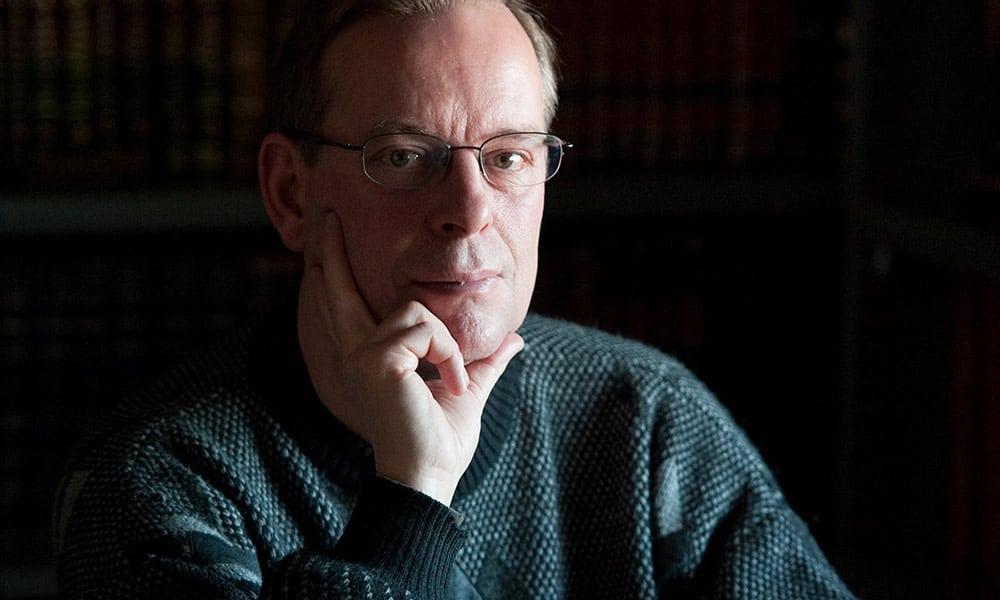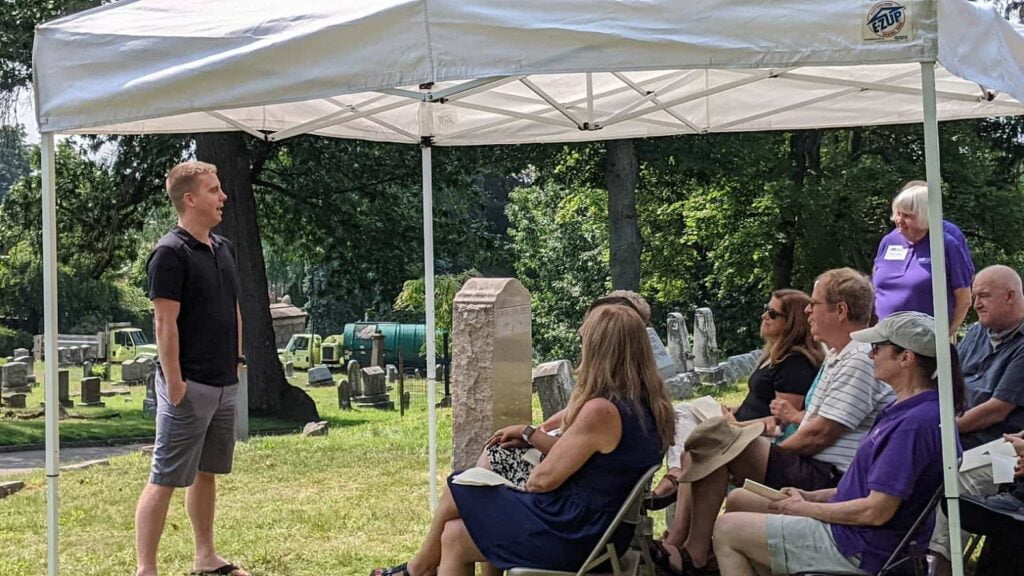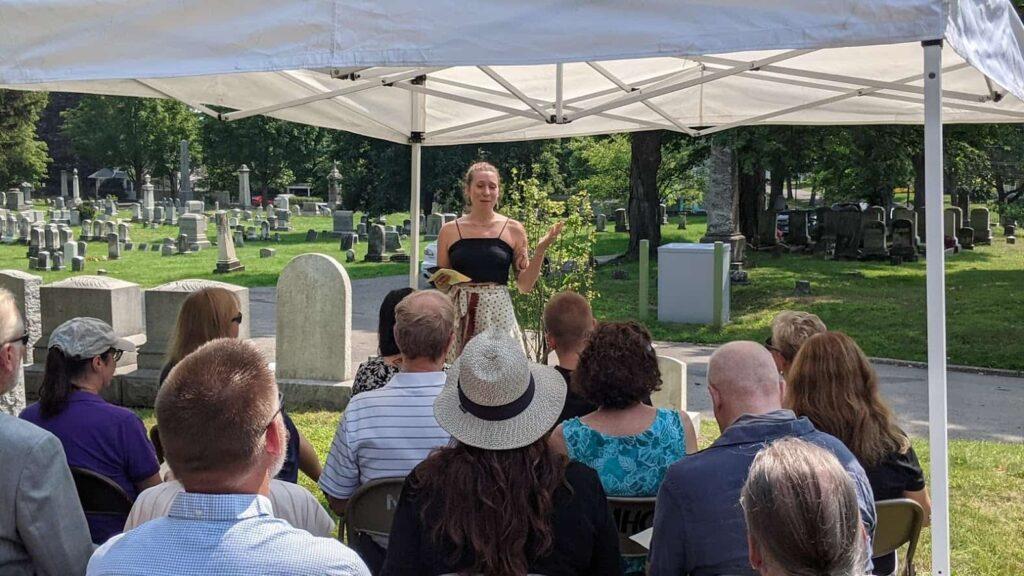
Our esteemed friend and colleague, Emil Homerin, professor of religion and classical studies at the University of Rochester, died on December 26th, 2020, at the age of 65. Shortly after his death the Friends of Mount Hope established a fund to plant a tree in Emil’s memory and a dedication was planned.
What joyous memories we have of Emil. He was a tour guide extraordinaire, generously presenting a theme tour every season that he was in the country. His last tour was in 2018, and in 2020 he was scheduled to present a tour entitled “Lost Secrets, examining symbols, inscriptions and funerary art that expressed views of life, death and immortality in the 19th century.” He taught a popular course at the University of Rochester entitled “Speaking Stones,” much of which was taught in Mount Hope Cemetery. He required his students to select a gravestone, research the burial occupants, and write an article about the individual or family. Many of the most outstanding stories were published in our Epitaph. Emil initiated our close relationship with Melissa Mead in the Rare Books Library at the U of R, a collaboration which we continue to appreciate today. For many years Emil served on the FOMH Board of Trustees.

It was a hot summer day – August 8, 2021- when the cortege, consisting of Emil’s family, friends, and members of the Friends of Mount Hope, met at the base of a hill at Mount Hope. The melancholy strains of a bagpiper resounded throughout the cemetery as the cortege, led by Nora Walter, Emil’s wife, slowly proceeded up the hill to the University of Rochester plot.
The guests were welcomed by Patricia Corcoran, President of the Friends of Mount Hope Cemetery, and tributes to Emil were given by Richard Reisem, Vice President, FOMH, Edward Wierenga, Professor Emeritus of Religion and Philosophy, Sophia McRae, former student, Nora Walter, Emil’s wife and Luke Homerin, Emil’s son. Tom Jones of the FOMH presented Emil’s tree, a common laburnum or golden chain tree. This tree is unique in Mount Hope, and will be a new species to add to our arboretum.

A poem was read written by Rumi, a favorite of Emil’s.
“On the day I die, when I’m being carried toward the grave, don’t weep. Don’t say, He’s gone! He’s gone. Death has nothing to do with going away. The sun sets and the moon sets, but they’re not gone. Death is a coming together. The tomb looks like a prison, but it’s really release into union. The human seed goes down in the ground like a bucket into the well… It grows and comes up full of some unimagined beauty.”
The ceremony concluded with a hearty rendition of Amazing Grace, accompanied by our bagpiper. As the song came to an end, the bagpiper continued playing, slowly disappearing into the hills of Mount Hope. It was a spiritual ending to a lovely service.
Emil, we will never forget your commitment to the mission of the Friends of Mount Hope.
May you rest in peace. May your memory be a blessing.
Patricia Corcoran
A Tribute to Emil Homerin:
IN MEMORY OF EMIL HOMERIN
Emil Homerin was an outstanding scholar who translated 14th-century Islamic poetry, publishing a stack of books on the subject.
He co-produced and directed an operatic production based on the Songs on the Death of Children by Gustav Mahler.
At the University of Rochester, Emil taught an exceptionally popular course called Speaking Stones. He mostly held classes in Mount Hope Cemetery itself. For students, one of the course requirements was to research and write essays about interesting people they discovered and who were buried in the cemetery.
Emil came to me with the best of these essays with the idea that as editor of the Epitaph, I might be interested in publishing them. This would be a desirable reward for students and a significant contribution to many issues of the Epitaph over a period of 20 years.
These essays broadened our knowledge of hundreds of permanent residents in Mount Hope and provided a library of knowledge that inspired our tour guides, provided content for our books, like Buried Treasures. And they stimulated our Epitaph readers.
This is just one of Emil’s many contributions as one of our dedicated board members. I missed him a lot when he took a year’s sabbatical to study Islam poetry at the Bibliotheca in Cairo, Egypt. And now I miss him forever.
Richard Reisem

